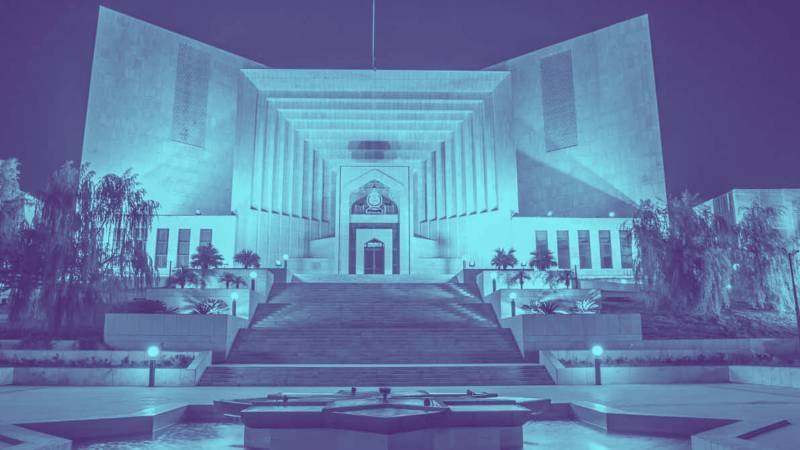
A body of senior lawyers in the country Saturday expressed concerns over a presidential ordinance promulgated the other day, which amended the Supreme Court Practice and Procedure Act 2023.
The concern was expressed in a statement issued by the Supreme Court Bar Association of Pakistan (SCBAP) President Muhammad Shahzad Shaukat, Secretary Syed Ali Imran and the 26th Executive Committee of SCBAP.
In their statement, they expressed their "deep remorse and anguish on promulgation of the Ordinance amending the Supreme Court Practice and Procedure Act 2023," it said, adding, "The Ordinance is a clear defiance of the long-standing struggle of legal fraternity which culminated in the Act."
They also expressed their deep concern at the timing and manner in which the ordinance had been issued and the fact that it practically amounts to a repeal of the act, which is unacceptable, particularly when the said legislation had already been upheld by
Supreme Court of Pakistan.
"SCBAP strongly believes that the original act served a pivotal role in strengthening the Supreme Court by enhancing access to justice and upholding the fundamental rights enshrined in the Constitution, thereby ensuring a more equitable and transparent judicial process. In contrast, today's amendments are detrimental to the Constitution, the independence of the judiciary, and the protection of fundamental rights.
SCBAP also viewed with grave concern that sacred institutions like the Parliament and the judiciary were on a collision course, which is destined to have devastating effects on democracy and the supremacy of the Constitution; if both sides do not exercise restraint, it can derail the whole system.
SCBAP called upon all relevant stakeholders to uphold the sanctity of the Constitution, the independence of the judiciary, and the fundamental rights of the people of Pakistan.
On Friday, President Asif Ali Zardari promulgated an ordinance which amended the Practice and Procedure Act 2023.
Per the ordinance, the case lodged first would be taken up first by the court, and the cases coming after would be fixed sequentially.
In a case filed under Section 184(3), an explanation/justification would have to be provided as to why it was a matter of public importance. A formal order will be issued if a case under Section 184(3) is taken up, whether it is a case of public importance or a human rights issue.
Under the ordinance, in a case filed under Section 184 (3), any order passed by the Supreme Court, a right of appeal has now been granted.
According to this ordinance, a transcript will be prepared of the proceedings including judges' remarks and observations during the case and this text will also be available to the public to make the judicial process more transparent.
Under the Practice and Procedure Act, a three-member committee was constituted, headed by the Chief Justice of the Supreme Court, including the senior puisne judge and the third senior judge as its members. But now, per the ordinance, the chief justice will continue to head the committee, the senior puisne judge will be a member and instead of the third senior judge, any judge of the top court could be invited to be its member upon the nomination from the chief justice from time to time.
One reason for this alteration is that cases were being delayed due to the non-availability of the third committee member in Islamabad.
Meanwhile, Federal Information Minister Attaullah Tarar said that a petition regarding the review of 63-A was pending to date. He remarked that some decisions should have come regarding the revision of Article 63-A as it was an important matter.
"All these reforms and amendments have been made keeping in mind the interests of the common people," he said.
He said that in the proposed constitutional package, there is mention of providing convenience to the people.
Meanwhile, soon after the ordinance was passed, Chief Justice of Pakistan Qazi Faez Isa summoned a meeting of the bench fixing committee under the Practice and Procedure Act. The composition of the meeting members included the chief justice, Justice Mansoor Ali Shah, while Justice Aminuddin Khan was nominated as the third member instead of the third senior judge, Justice Munib Akhtar.

